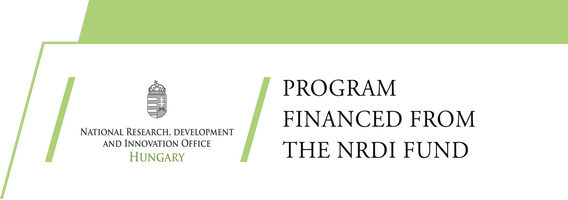Almási Gábor (Independent Scholar, PhD)
Jacques Cappel Sr.: Fragmenta (1517)
Békés Enikő (RCH, Institute for Literary Studies)
Medieval or Renaissance? Shifting Canons in a Fifteenth-Century Medical-Astrological Treatise
Elena Cerqua (Sapienzia University of Rome)
Reading the Song of Songs: Latin and Vernacular Texts on Enclosure
Draskóczy Eszter (RCH, Institute for Literary Studies)
'Imagines Mortis' in 16th-century Transylvania and Hungary: Authorial Strategies
Ertl Péter (Eötvös Loránd University)
Da satira anticuriale a preghiera anti-ottomana: episodi della fortuna del Liber sine nomine petrarchesco alla metà del XV secolo
[From Anti-Curial Satire to Anti-Ottoman Prayer: Episodes in the Reception of Petrarch’s Liber sine nomine in the Mid-Fifteenth Century]
Danilo Facca (Polish Academy of Sciences)
Bartholomäeus Keckermann and the Canon of 'logic': a Fading Aristotelianism
Falvay Dávid (Eötvös Loránd University)
Humanism in the Cloisters
Fellegi Zsófia (RCH, Institute for Literary Studies)
From the Print Edition to the Semantic Web: Methodological Shifts in Publishing Medieval and Early Modern Central European Texts
Claudio Griggio (University of Udine)
Il canone umanistico tra Ungheria e Veneto (Guarino, F. Barbaro, Giano Pannonio, Senofonte)
[The Humanist Canon between Hungary and Veneto: Guarino, F. Barbaro, Giano Pannonio, and Xenophon]
Hári Kata (Eötvös Loránd University)
Antichrist’s Interactions: Different Faces of the Antichrist and the Fifteen Signs Before Doomsday Picture Book and the Relation Between Them
Simona Iaria (University of Turin)
Aeneas Silvius Piccolomini and his Humanist Canons
Magdaléna Jacková (Czech Academy of Sciences, Institute of Czech Literature)
Palliata as a Model for Four Latin Plays from the Czech Lands
Jankovits László (University of Pécs)
Iron Age and Golden Age in the Stauromachia of Stephanus Taurinus
Kiss Farkas Gábor (Eötvös Loránd University)
The Literary Canon of Greek Education in Schools in Sixteenth-Century Hungary
Virginia Lauria (Sapenzia University of Rome)
Mocking Death: Erasmus and Holbein’s Reuse of Lucian of Samosata
Lengyel Réka (RCH, Institute for Literary Studies)
A Poet of Two Nations: The Integration of Janus Pannonius’s Oeuvre into the History of Hungarian Literature
Móré Tünde (RCH, Institute for Literary Studies)
How to Become a Famous Scholar? Creating a Canon of Protestant Theologians Through the Use of Early Modern Biographies
Petra Mutlová (Masaryk University)
Mediating Hussite Literature
Palkó Gábor (RCH, Institute for Literary Studies)
Intra- and Intertextual Link Detection in a Neo-Latin Correspondence
Adrian Papahagi, Carmen Oanea (Babeş-Bolyai University)
Reading Humanists and Humanist Readings in Sixteenth-Century Cluj/Kolozsvár
Vasileios Pappas (University of Ioannina)
The Modern Greek Translation of Ambrosio Marliano’s Theatrum Politicum by Ioannis Avramios
Raf van Rooy (KU Leuven)
A Pan-European Phenomenon? Canonizing New Ancient Greek in the Sixteenth-Century Low Countries
Federico Rossi (Università della Svizzera Italiana)
“Adiungit se tertium”: Canon-Building and Self-Legitimation in Dante’s Works
Mirella Saulini (Archivum Historicum PUG)
Canone e controcanone. Il caso della letteratura dei drammaturghi gesuiti
[Canon and counter-canon. The Case of the Jesuit Theatrical Literature]
Ludovica Sasso (University of Münster–Dresden University of Technology)
Italian Neo-Latin Poetry on the ‘Turks’ for Matthias Corvinus Between Classical Models and the Search for a New Poetic Canon
Florian Schaffenrath (University of Innsbruck)
Commentaries as Sources for Early Modern Canones
Claudia Schindler (University of Hamburg)
Canonizing Neo-Latin Didactic Poetry: The Case of János Molnár's Phytologicon (Buda 1780)
Lukas Spielhofer (University of Heidelberg)
Framing the Canon: Digital Tools and Humanist Paratexts in Sixteenth-Century Vienna
Dominika Tokarz (Jagellonian University)
At the Junction of Canons—the Heaven of Poets by Maciej Kazimierz Sarbiewski in the Light of Plato's Cave Myth
Svorad Zavarský (Slovak Academy of Sciences)
The Ciceronianism of Christophorus Preyss Pannonius (1515–1590)
Vígh Éva (University of Szeged)
“Aegyptii per figuras animalium, sensus mentis effingebant.” L’eredità della simbologia animale in Kristóf Lackner
[The Legacy of Animal Symbolism in Kristóf Lackner]

